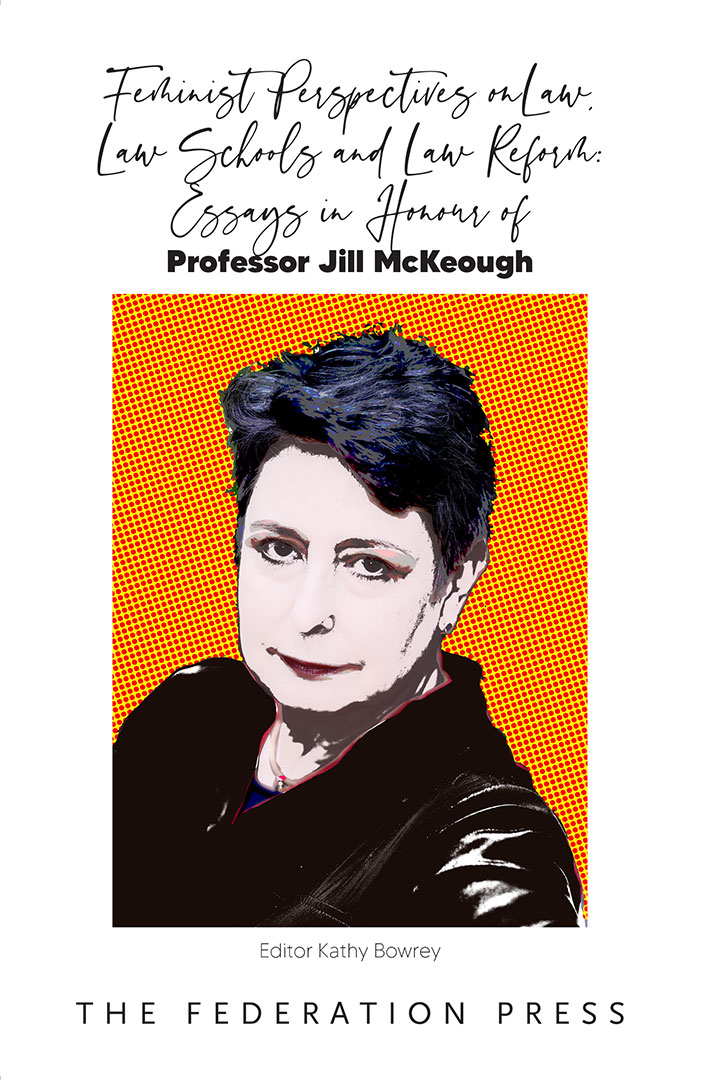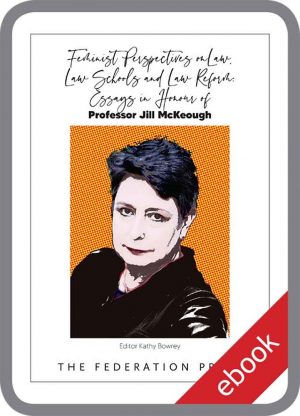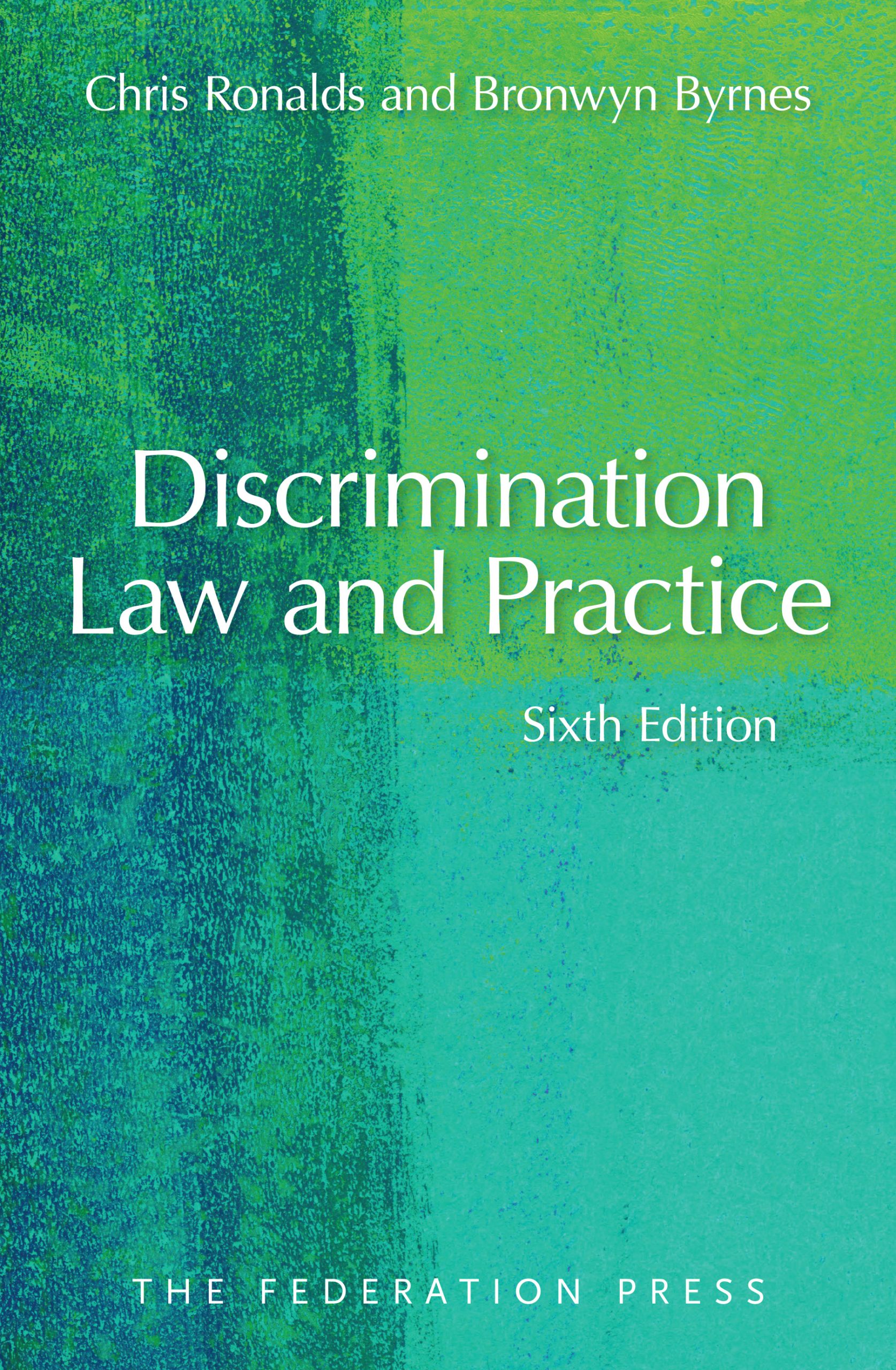Emerita Professor Jill McKeough is a pioneer of Australian intellectual property scholarship and teaching, former Head of School and Dean, Chair of the Council of Australian Law Deans and law reform commissioner. This volume considers Jill’s career in light of the politics of legal education, university management, law reform and university research assessment. Each of the chapters discusses particular career achievements, hurdles faced and critical reflections on her legacy. Gender themes addressed include: agency and opportunity; approaches to management and leadership; valuing labour and contribution; authority in public life; and understanding research impact.
Today only about 4% of festschrifts touch on women’s careers. This festschrift includes consideration of the underbelly of women’s success in a university. Successful careers do not magically unfold. Nor are they accidents. In exploring how one ‘gets on with it’ and what can be achieved given the chance, it is hoped that this collection can help to seed more ideas about what is possible and to keep bringing about necessary change.
Foreword Rosalind Croucher AM
1. On Law, Law Schools and Law Reform: Honouring Emerita Professor Jill McKeough – Professor Kathy Bowrey
2. Through the eyes of recent history: Emerita Professor Jill McKeough as leader and exemplar in Australian legal education – Emeritus Professor Paul Redmond
3. The Transformation of a Faculty of Law: Lessons in Leadership Excellence – Professor Anita Stuhmcke
4. A Journey through Leadership: the Parallax Effect – Professor Lesley Hitchens
5. Leaders and Litigants: Looking for Women in Copyright Cases – Professor Isabella Alexander and Professor Michael Handler
6. Jill McKeough and IP Law and Policy Reform – Emeritus Professor Sam Ricketson
7. Parallel importing of trade marked goods, the slow process of law reform and why it might be so – Professor Mark Davison
8. Inoculating law schools against bad metrics – Professor Kimberlee Weatherall and Associate Professor Rebecca Giblin
The book will plainly be of interest to those curious about Professor McKeough’s career or her contribution to intellectual property law. But perhaps the book’s greatest appeal, and value, is in its exploration of female leadership through Professor McKeough. This book will resonate with, comfort, and inspire many women in academia and the legal profession. Many women will see themselves and their own experiences reflected in the pages of this book. And will have in Professor McKeough something of a north star by which to navigate.
Michelle Sharpe, Law Institute Journal (VIC), June 2022
By exploring the breadth of McKeough’s trail blazing career across different domains, the book provides valuable insights applicable to persons of all genders. Overall, the book is an enjoyable read by talented authors of an important IP scholar and policy maker whose influence is far-reaching.
Fiona Rotstein, IPSANZ Journal 127, March 2022
Q&A with Editor Kathy Bowrey
Where did the idea for this collection come from?
Women being in leadership is no longer surprising. A whole generation of women in law that many are familiar with are now retiring. I noticed that there is very little attention being paid to this. Senior women are going quietly, as if their presence in law schools was never that significant in the first place.
When questioned about this, women often reply that they don’t feel comfortable with noise being made about them personally anyway. But they are interested in talking about their careers in the academy – and hope some of their experience might be usefully passed on.
Jill McKeough is a woman of astounding accomplishment. She is warm, funny, deadly sharp. So many have benefitted from her support and teaching. She is looked on by many working in law as the very best example of leadership. I pressed Jill to agree to what is really an experiment – a different kind of festschrift to the kinds of works produced about men’s careers.
What did you learn writing the book?
At the age of 12 Jill was reading the Forsyth Saga by John Galsworthy, which is in many ways as epic as Tolkein’s The Lord of the Rings, except that it has women and lawyers in it. Jill chose the role model of the lawyer and rejected the character of his wife, a sappy, decorative, perpetually unhappy female.
What was an unexpected aspect you discovered/unearthed as it progressed?
That of all the festschrifts in English in the common law world the number documenting or celebrating women’s careers could be as low as 4%. I mean, I thought the proportion would be low, but really – there is something really repugnant about that. There is so much to learn that should not be lost.
What do you want the book to do for people?
It is a book that helps readers reflect on agency and personal opportunity and to understand these in light of the broader context of the times. Chapters also have important things to say about the politics of law reform, how it works, and just because recommendations are not adopted right away, this doesn’t mean the work does not have an impact.
Do you have any special favourites among the chapters?
Anyone involved in Australian legal education should read the chapter by Paul Redmond about Jill’s career in light of a history of legal education from the 1970s to the current day.







